The Apple iPad Air 2 Review
by Joshua Ho on November 7, 2014 9:30 AM EST- Posted in
- Tablets
- Apple
- Mobile
- iOS
- ipad Air 2
CPU Performance
Now that we’ve managed to take a good look at the changes between the A8 and A8X, we can get a good idea of what those differences translate to in some real world performance. While we’ve already seen pure CPU performance, such differences can be small when viewed from real applications. To this end, we use a few browser benchmarks and similar benchmarks. I definitely want to caution against comparing SoCs across platforms though, as rendering engines have a significant effect upon the performance of the device.
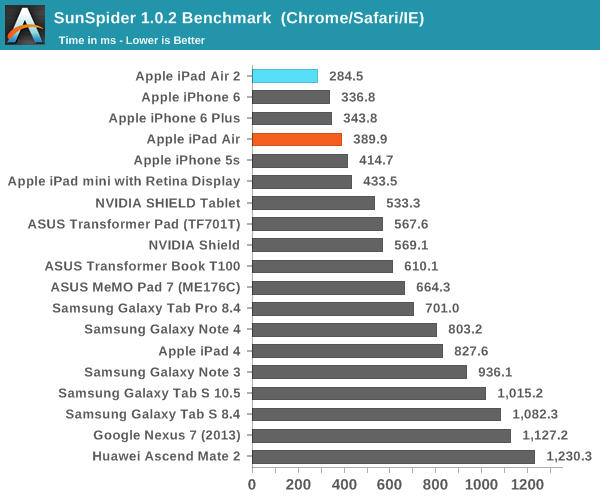
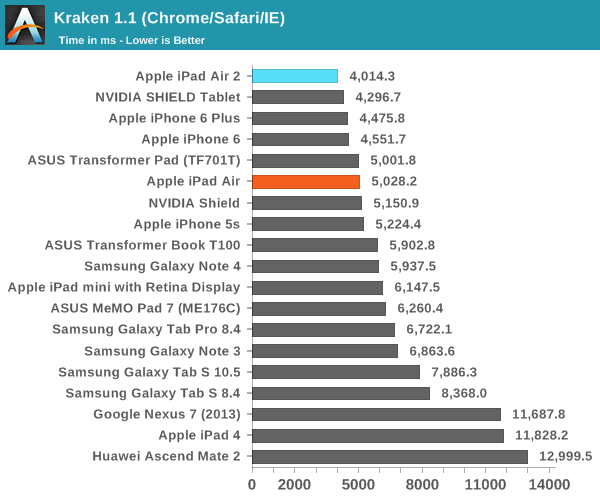
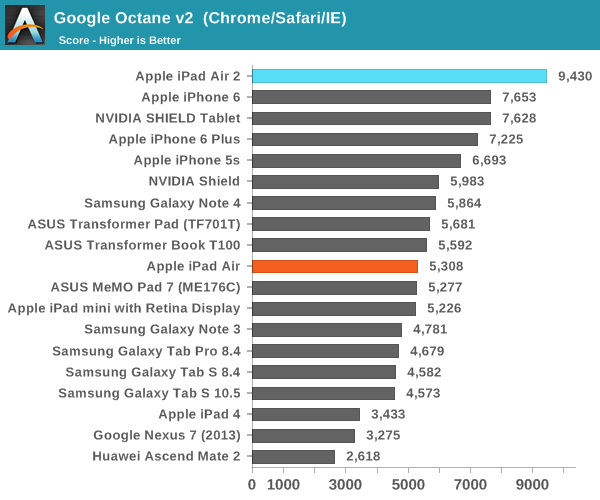
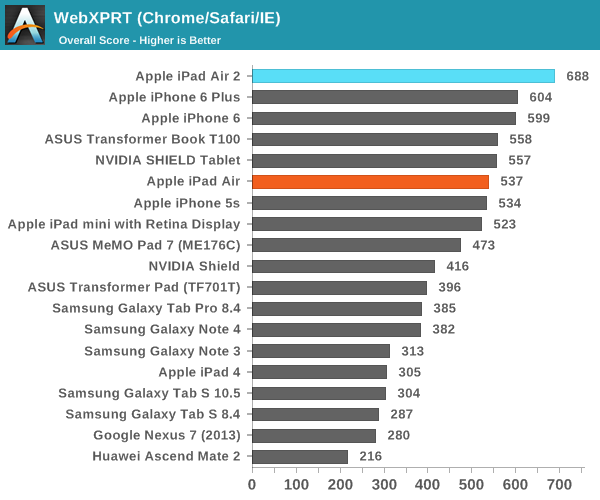
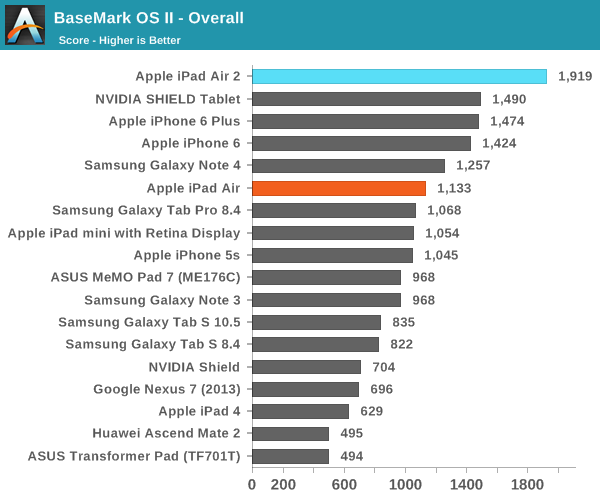
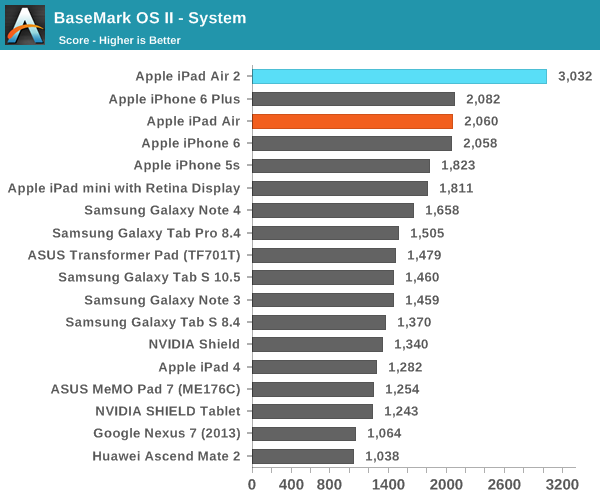
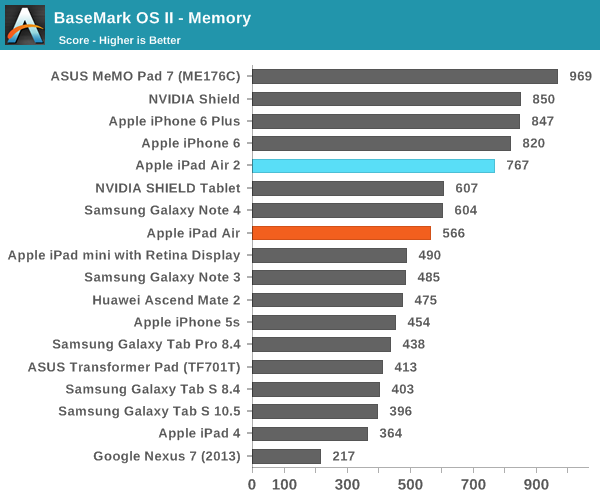
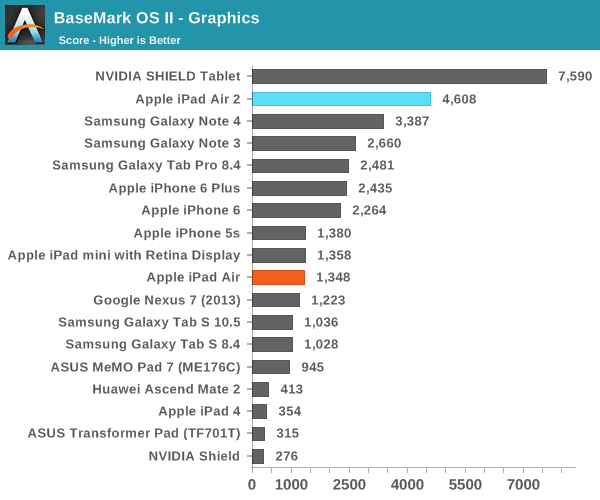
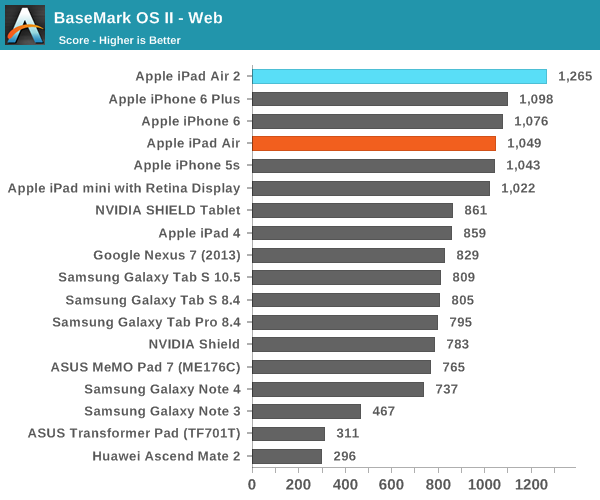
There's really not too much that needs to be said here, as the extra core and minor clock speed bump make for ridiculous amounts of performance. The A8X is class-leading here despite generally having fewer cores and lower clocks than the rest of the competition. However, in comparison to A8 we don't see a massive jump in performance. This seems to suggest that even a third core will invoke diminishing returns in general, although these changes mean that it's enough for the iPad Air 2 to be one of the fastest ARM-based devices on the market. One can see an odd regression in the Basemark OS II storage test, but this is likely to be production variances in NAND quality rather than anything notable.










226 Comments
View All Comments
deontologist - Friday, November 7, 2014 - link
About time this review went up.odedia - Friday, November 7, 2014 - link
Will you review the iMac 5k? I'm waiting for the review before purchasing. Mainly ssd&gpu performance.Ryan Smith - Friday, November 7, 2014 - link
The Retina iMac review will be next week. However it's the base model, so you're looking at a 1TB Fusion drive setup rather than a pure SSD, and the GPU is basically just Radeon HD 7870.odedia - Saturday, November 8, 2014 - link
That's too bad... I would expect the majority of those buying this aching to at least bump up the Cpu and more importantly -the GPU.ws3 - Saturday, November 8, 2014 - link
Bumping up the GPU is only "more important" for people who play high-end games. For most iMac users it is unnecessary. For example, if I were to buy the 5k iMac I would use it mainly for programming, and not for programming high-end games, so the GPU upgrade wouldn't be necessary for me.deontologist - Friday, November 7, 2014 - link
“Enhanced Cyclone” is still at the top of its class for both IPC and overall single-threaded performance" ... the Apple bias is strong. I like how you guys cite Geekbench scores while failing to note that the Nexus 9 with its Tegra K1 running **32 bit** Geekbench still outscores the A8X. Granted, the K1 is running at 2.3 GHz, so its IPC might be a bit lower than the A8X's 1.5 GHz, but overall single-threaded goes to the K1 no sweat. When 64-bit GB is ready I expect the K1 to blow the A8X out of the water.tipoo - Friday, November 7, 2014 - link
They waited on newer firmware before making conclusions on the Nexus 9. If anything you should be thankful for that, so relax.steven75 - Friday, November 7, 2014 - link
Speaking of bias... The Geekbench score I saw were not at all clearly for the K1.blackcrayon - Friday, November 7, 2014 - link
The single core performance of both seems to be similar, so perhaps they're both at the top of their class. The Apple whining is strong (with you).techconc - Friday, November 7, 2014 - link
I'm not sure exactly what your issue is. The statement about the A8X having the highest IPC is a fact. This is not in dispute. You even acknowledge the clock speed difference in your post. How exactly do you interpret this as a bias?